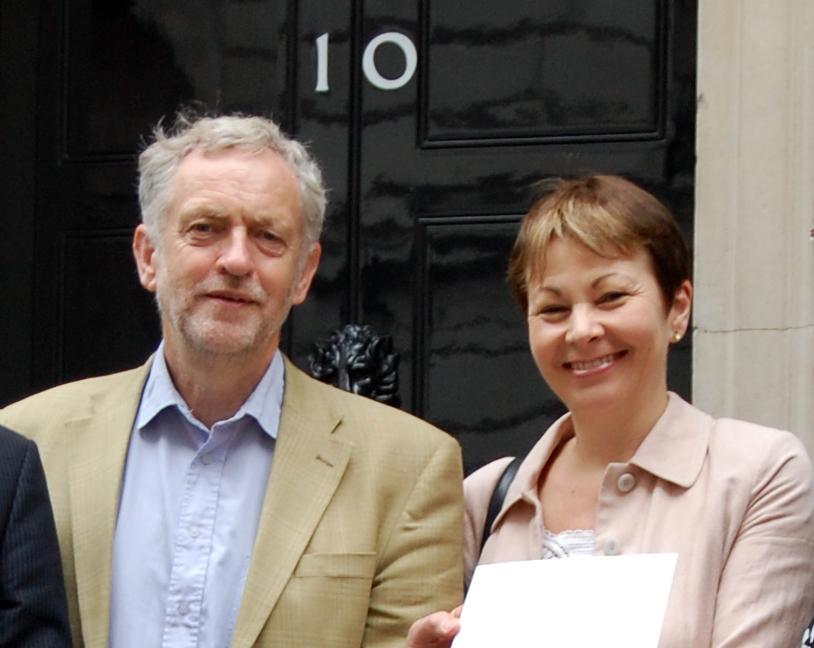Jeremy Corbyn supporters’ hope of a ‘progressive alliance’ with SNP and Greens is a mirage
In the marginal seats Labour need to win to form another government, the Greens are nowhere

Your support helps us to tell the story
From reproductive rights to climate change to Big Tech, The Independent is on the ground when the story is developing. Whether it's investigating the financials of Elon Musk's pro-Trump PAC or producing our latest documentary, 'The A Word', which shines a light on the American women fighting for reproductive rights, we know how important it is to parse out the facts from the messaging.
At such a critical moment in US history, we need reporters on the ground. Your donation allows us to keep sending journalists to speak to both sides of the story.
The Independent is trusted by Americans across the entire political spectrum. And unlike many other quality news outlets, we choose not to lock Americans out of our reporting and analysis with paywalls. We believe quality journalism should be available to everyone, paid for by those who can afford it.
Your support makes all the difference.Jeremy Corbyn’s bold pitch in last year’s Labour leadership election was that his message of left-wing populism would convert thousands of young people who hadn’t bothered to vote in past general elections into enthusiastic Labour supporters. Winning over Conservative voters would be a thing of the past and a brave new era of re-enfranchisement was upon us.
However, a year on, with the Tories boasting a double-digit lead in most polls, the monumental task of getting someone so hostile to traditional electoralism elected has called for desperate measures: working with rival parties to win back marginal seats.
It may sound attractive on paper. David Cameron emerged with a majority last year because of the demise of anti-Conservative tactical voting in Liberal Democrat strongholds in the southwest of England. An electoral pact might at least hinder Theresa May.
Corbyn was wise this week to rule out an alliance with the Scottish National Party, which had been mooted by several members of his top team, including Clive Lewis, shadow defence secretary, and, more worryingly, Dave Anderson, who is shadow Scottish secretary. I am told Diane Abbott, shadow health secretary, also suggested it in a meeting, but she was promptly shouted down by senior Scottish Labour figures.
The nationalists and Labour have fundamentally different aims. Where Labour seek to govern to improve the lives of all British people, the SNP promote social justice partly to further their endgame of independence. Their left-wing message is a façade and if Scotland had been dominated by the right the SNP would have tried to outflank the Tories.
Short of a similar message of anti-establishment, anti-austerity and ban-the-bomb populism and complaints about media conspiracy, it’s hard to see what common ground could be found between two parties with such a bitter enmity, particularly considering that Labour are the nearest challengers in many SNP seats.
Yet the idea of a “progressive alliance” persists in the form of a voting pact with the Greens, with Caroline Lucas claiming that Corbyn’s office had sounded her out about some sort of arrangement, saying “it doesn’t make sense for parties of the left to be constantly fighting each other”.
That is to imply that the Greens and Labour are equals when the Green Party’s history of governing Brighton council is nothing compared to the latter’s achievements governing the whole of the UK. The Greens are, as they always have been, a fringe voice and have had one MP in their history – Lucas herself in Brighton Pavilion.
In the marginal seats Labour need to win to form another government, the Greens are nowhere. In Bolton West, the Greens did not even field a candidate and Labour came second. In Rossendale and Darwen and in Nuneaton, their votes were barely enough to scratch the surface of the Tory majority.
In others, such as Morley and Outwood, a combined Green and Labour vote would be enough to unseat a Tory MP but this tactic assumes that Green voters can simply be handed over to another party on a plate. Labour should be looking to win as many seats as possible – as it did three times in the not too distant past – rather than teaming up with rivals.
A pact between Labour and the Greens would be an admission by Corbyn that he cannot build a programme with broad appeal to the electorate on his own but, worse than that, it wouldn’t work.
Join our commenting forum
Join thought-provoking conversations, follow other Independent readers and see their replies
Comments